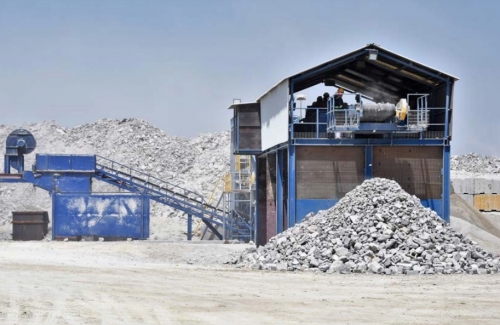Advances in waste management
TDT | Manama
Around 1.8million tonnes of waste was deposited into the Askar landfill in 2019, according to Works, Municipalities Affairs and Urban Planning Minister Eng. Essam bin Abdulla Khalaf, who added that work is now ongoing to reduce this amount significantly through the implementation of new strategies including recycling programmes.
The Minister affirmed that one of the greatest challenges faced by the Works Ministry is dealing with accumulated waste, especially following the expansion of urban areas across the Kingdom. The Minister indicated that from the total volume of waste last year, demolition and construction waste amounted to the highest portion at 38 per cent, with a quantity of 677,000 tonnes.
It was followed by household waste at 32 per cent in the amount of 566,000 tonnes, while commercial and industrial waste was 24 per cent of the total, amounting to 424,000 tonnes. Agricultural waste amounted to seven per cent of the overall volume at 126,000 tonnes.
The Works Minister pointed out that these numbers and statistics are the main reference through which the Ministry is creating a database to enable it to deal with existing challenges. He noted that the national strategy adopted by the Cabinet in 2018 has allowed for the transition to modern and advanced procedures.
This is based on several initiatives, and through these, the amount of waste is expected to reduce significantly in the coming years, he said. The Minister expects the total volume to go down to around one million tonnes of waste per year, as compared to the 1.8million tonnes in 2019. The initiatives being implemented included short, medium and long-term projects.
Short-term initiatives The management and operation of the Askar landfill using advanced technology has been running since November 1 last year, and it will extend the life of the current landfill for an additional six years. A facility for recycling construction and demolition waste has also been operational since January last year.
A 10-year contract was signed through a partnership with the private sector to separate construction and demolition waste and convert it into materials that can be used in infrastructure projects. Bidding for this project was awarded to Nass Asphalt by the Tender Board, and a total of 355,000 tonnes of construction waste has already been processed, reducing the demolition and construction waste received at the landfill by 52 per cent in 2019.
Medium-term initiatives Work to establish a facility for recycling green waste and converting it into fertilisers has begun, in cooperation with Urbasir Cleaning Company. The pilot project in Hoora A’ali on a land area of 5,000 square meters started in July of 2018, converting approximately 10 tonnes of green waste daily to fertilisers.
After the success of this pilot project, it was decided to partner with the private sector to launch further projects to convert part of the green waste into fertilisers, which can be used locally in the agricultural sector.
Long-term initiative The establishment of a facility to convert waste that cannot be recycled into energy through incineration. A tender has been launched to appoint a consulting company to conduct a technical, financial and legal study to implement this conversion into energy
Related Posts

